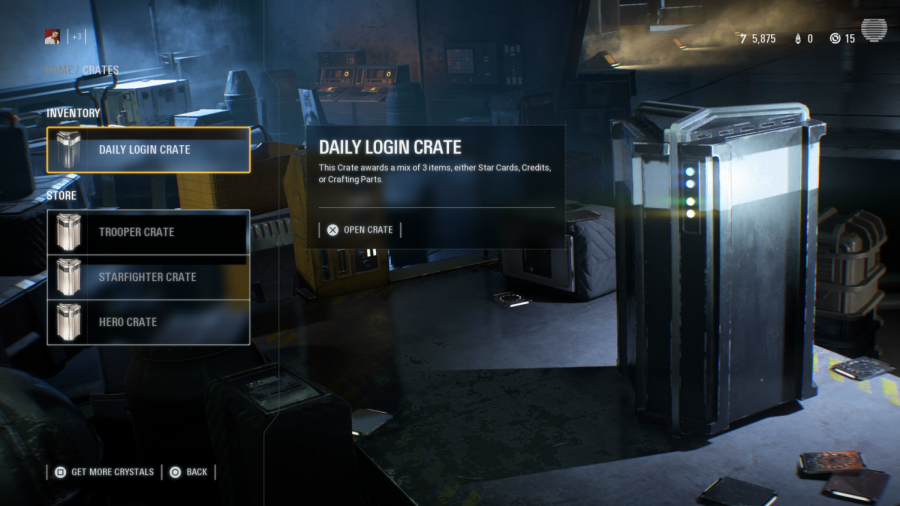Companies charge for full games, enjoyment sold separately
“Star Wars Battlefront II” includes a loot crate feature criticized by fans for being a money-grab and the means to obtain most unlockable content.
November 30, 2017
It used to be that a full game was sold for the price displayed, but now companies want to charge for both the game and the privilege of playing it in full.
Microtransactions and Downloadable Content (DLC) are business models that have begun appearing in popular video game franchises. DLC is content released for a game after the game’s initial release, and is often sold for as much as half the original game’s price.
Microtransactions involve digital content being sold to the player, in exchange for in-game currency. The content can range from cosmetic items for the player to items that give the player advantages over other players. While most games allow the player to gain this in-game currency by playing the game, it is often time consuming, and players are offered the option to pay real money for the currency to save time.
Microtransactions have been called “predatory” and have been compared to gambling because of systems such as “loot boxes” which reward the player with a random item upon paying a certain amount. Microtransactions were first found in ‘freemium’ mobile games – games that are free to download but make revenue by offering digital content in exchange for real money.
Now, companies such as Electronic Arts (EA) have implemented them into games they charge full price for. The company was lambasted by fans after the release of “Star Wars Battlefront II,” which had content locked behind in-game currency purchases. An article on swtorstrategies.com by Soeren Kamper estimated that a player would need to play for about 4500 hours or pay as much as $2100 to unlock all the content. Beloved characters of the “Star Wars” series such as Darth Vader were among the characters locked away from players.
Another game published by EA, “Need for Speed Payback,” gives the player rewards with a slot-machine animation. Such games toe the line between entertainment and addiction. The pivotal role probability plays in such games have led many to call for regulations on in-game currency, much like the current regulations on gambling.
The backlash against microtransactions has caught the attention of governments around the world. In May, China forced publishers to reveal the odds at which a certain item was dropped from a “loot box.” In October, a Labour member of United Kingdom Parliament opened an inquiry into the topic. Now, Hawaiian state Reps. Chris Lee and Sean Quinlan announced they would take action against the practice.
“These exploitive mechanisms have no place in games being marketed to minors, and perhaps no place in games at all,” Rep. Lee said.
However, there are some who see microtransactions as the future. KeyBanc Capital Markets analyst Evan Wingren said that video game publishers charge gamers an inexpensive rate and should raise prices. This view is shared by several others, including Strauss Zelnick, CEO of Take-Two Interactive, the studio that published “Grand Theft Auto V.” After the success of microtransactions in the game, Zelnick stated that all future titles published by the studio would include them.
“One of the things we’ve learned is if we create a robust opportunity, and a robust world, in which people can play delightfully in a bigger and bigger way, that they will keep coming back,” said Zelnick. “They will engage. And there is an opportunity to monetize that engagement.”









Steven Guzman • Nov 30, 2017 at 10:52 pm
Yo have you seen the EA memes???